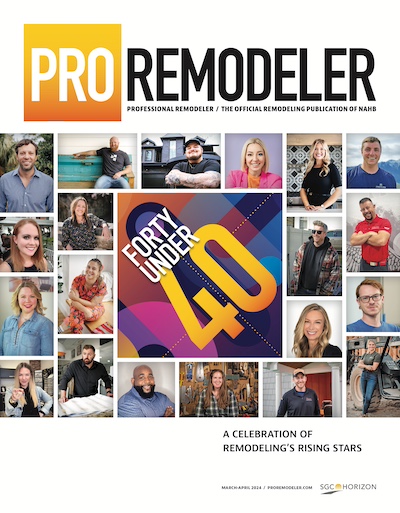 |
|
Kim Sweet
|
As a card-carrying member of Generation X with a baby face that belies my age, I've been upholding the work ethic, drive, maturity, skills and knowledge of my cohort for more than a decade. I've never noticed the lack of initiative and attitude of entitlement that I've heard many employers claim to see in younger workers. I'm sure my responses sounded defensive or naïve to some.
Yet as the construction industry struggles to renew and replenish its labor pool, particularly in the field, we cannot afford to write off an entire generation of employees. Either this group will somehow magically transform into the workers we want, or we close our doors when all our current carpenters retire. Or we look at a third option: trying to understand what drives different segments of the workforce and to see how those needs and wants might fit into our companies.
Research by Bruce Tulgan of RainmakerThinking Inc. (www.rainmakerthinking.com), a Connecticut-based research and training firm that specializes in young talent, indicate that new work values and norms that started showing up in Generation X in the 1990s will become permanent. As employers have had to become more efficient in a high-risk, fast-paced economy, employees have become more aggressive in attitude, expectations and behaviors, according to the 2003 white paper, "Generational Shift: What We Saw at the Workplace Revolution."
In practical terms, the report explains, most employees today have to work harder and produce more; adjust to more change, receive less guidance, learn more technology and acquire more skills, all while experiencing less job security. Employees are less obedient, more likely to question authority, define success in ways other than seniority, and don't "invest" in company initiatives unless they know specifically what's in it for them. Worried about long-term stability, employees demand more short-term rewards.
There's a reason the 1997 movie "Office Space" has taken on cult status with so many of my Gen X peers. Take the following quote from the main character, Peter, explaining his work philosophy to a consultant: "Now if I work my a-- off and Initech ships a few extra units, I don't see another dime, so where's the motivation? And here's another thing, I have eight different bosses right now....So that means when I make a mistake, I have eight different people coming by to tell me about it. That's my only real motivation is not to be hassled, that and the fear of losing my job. But you know, Bob, that will only make someone work just hard enough not to get fired."
Are you laughing or are you horrified? Quid pro quo, tit for tat - many of today's employer/employee relationships fall along those lines. That so many remodeling companies have better relationships than that is a tribute to our industry and a major advantage to be promoted when recruiting.
This month's cover story package looks at the companies that get it right - the remodelers who work referrals, networks and associations to get the best people, train and support them, and recognize their efforts. They've figured out how to work with people of all ages, skill sets and cultural backgrounds to create a dynamic environment that makes sense for their businesses.
At Professional Remodeler, we aspire to these same practices. As our organization changes, so do our needs and our personnel. With the addition of Editor in Chief Mike Morris, Professional Remodeler enters 2005 poised for growth. Next month you'll start reading his column instead of mine; I'll be focused on in-depth reporting and scouting in the far reaches of the industry. See you there.


